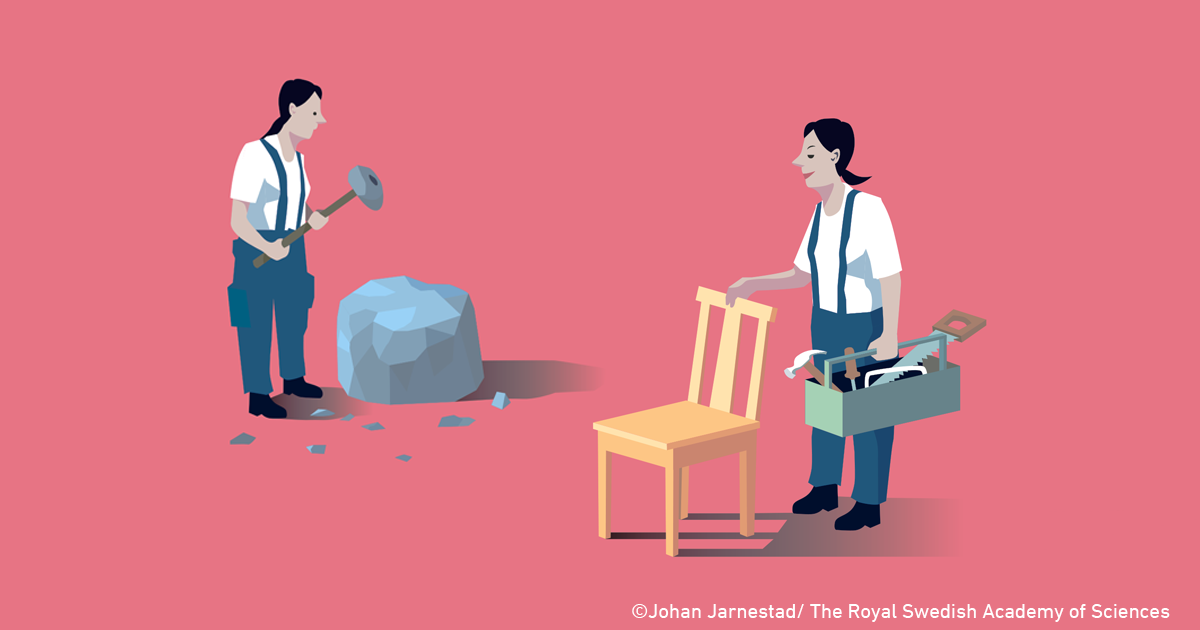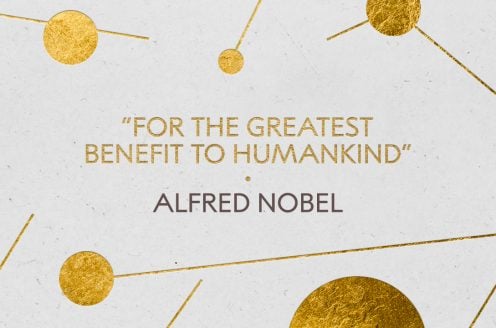
Nobel Prize in Chemistry 2021
The Nobel Prize in Chemistry 2021 was awarded jointly to Benjamin List and David W.C. MacMillan "for the development of asymmetric organocatalysis"
And some fantastic discussion on hacker news. Top rated comment summarizes the importance of this invention:
The Nobel Prize in Chemistry 2021 | Hacker News
"The prize is about artificial catalysts. A catalyst is a substance that speeds up a reaction without being consumed. Another way to speed reactions up is to heat them, but that consumes energy and often leads to by-products that must be removed and disposed of.
The "asymmetric" part has to do with one kind of by-product. Some reactions produce 50% of a by-product that must be separated out and disposed of. This happens because some molecules have 3D structure that's different than its mirror image. Think of the way that certain objects like bottle caps and screws only turn one way to tighten. Molecules can have that property (including many drugs you may have taken), and if the handedness is wrong, in many applications, it's a by-product and/or poison. An asymmetric catalyst can make molecules of one handedness selectively, saving material, money, and energy.
The "organocatalysis" part has to do with what the catalyst is made of. Prior to the awardee's research, catalysts tended to contain metal atoms. A few Nobels have been awarded for catalytic processes that use metals.
So metals are great in principle, but in practice have issues. Some metals are linked to toxicity at trace levels. So when preparing drugs, you need to be very careful about purifying out the metal contaminants. Palladium is an example of a very versatile catalytic metal that causes problems during drug manufacture. Metals can also be quite expensive. Platinum and Rhodium are used in both chemical manufacture and in automobile catalytic converters. The price of Rhodium hit $25,000/oz recently. Not all metals are this expensive, but the cost and availability are often a problem.
The awarded work uses catalysts that don't contain metals. Instead, the catalysts contain the elements carbon, hydrogen, oxygen, nitrogen, and possibly some other non-metal atoms. In other words, these catalysts are made of the same kinds of atoms as life. (Enzymes catalyze biological reactions.) So now there's a link between biological catalysis and artificial catalysis that didn't exist before.
This work solved a number of practical problems, really went against dogma at the time, and opened up an important area of research that intersects with big questions like the origins of life."


